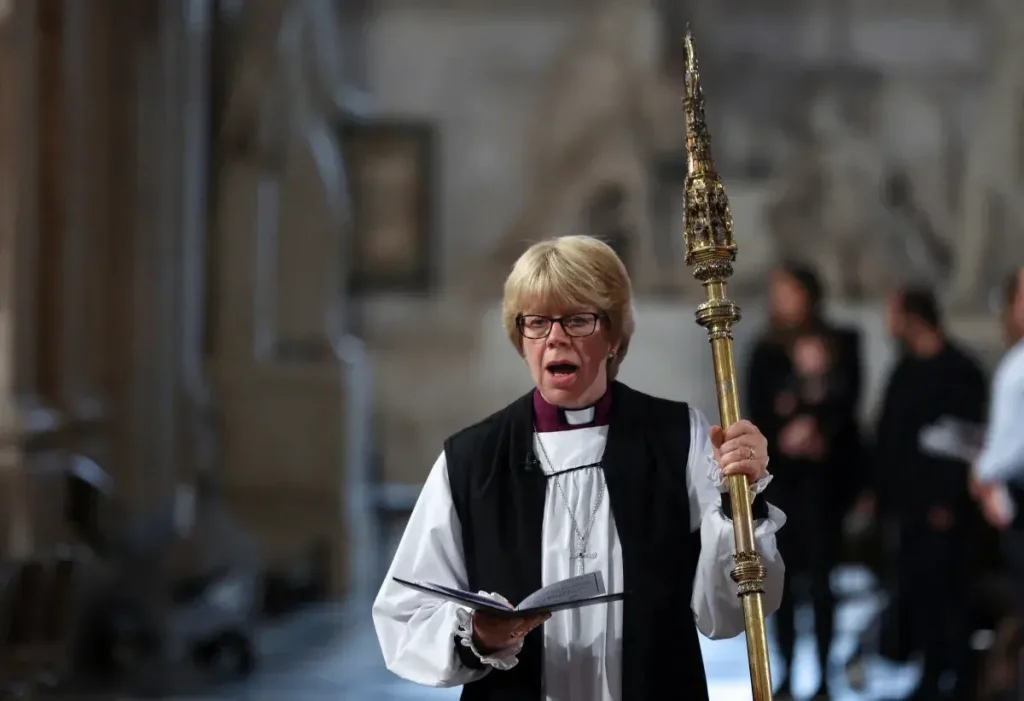Pioneering Leadership: Dame Sarah Mullally Makes History as First Female Archbishop of Canterbury
In a watershed moment for the Anglican Communion, Dame Sarah Mullally has been appointed as the new Archbishop of Canterbury, becoming the first woman to hold this prestigious position in the Church’s long history. At 63 years old, the former Bishop of London steps into this global leadership role at a pivotal time, inheriting the spiritual guidance of approximately 85 million Anglicans worldwide. Her historic appointment represents not just a personal achievement but a significant milestone in the ongoing evolution of one of the world’s oldest religious institutions.
Dame Sarah’s elevation comes in the wake of Archbishop Justin Welby’s resignation, which followed controversy surrounding his handling of sexual abuse allegations within the church. This transition of power occurs during a period when the Anglican Communion faces numerous challenges, including addressing historical wrongs, navigating societal changes, and maintaining relevance in increasingly secular societies. Mullally brings to this role not only her theological expertise but also her unique background as a former Chief Nursing Officer for England, experience that may prove valuable as she works to heal divisions and rebuild trust within the community she now leads.
The appointment of the first female Archbishop of Canterbury signals a profound shift in church leadership, coming less than a decade after the Church of England first allowed women to become bishops in 2014. Dame Sarah herself was among this pioneering group, first as Bishop of Crediton and later ascending to become Bishop of London in 2018, making her one of the most senior figures in the Anglican Church even before this latest appointment. Her rise through the ecclesiastical ranks has been characterized by a combination of pastoral sensitivity and administrative acumen, qualities that will be essential as she assumes this globally significant role.
As Archbishop of Canterbury, Dame Sarah inherits both the ceremonial and substantive leadership of the Anglican Communion, a diverse global family of churches spanning continents and cultures. She becomes the 106th person to sit on the throne of St. Augustine, joining a lineage stretching back to 597 CE. Her responsibilities will include serving as the spiritual leader of the Church of England, acting as a unifying figure for Anglicans worldwide, and representing the church in ecumenical relationships with other Christian denominations and faith traditions. Additionally, she will play a key ceremonial role in British public life, including participating in significant royal events.
Dame Sarah faces the considerable challenge of addressing the issues that led to her predecessor’s departure, particularly rebuilding confidence in the church’s safeguarding processes and creating environments where survivors of abuse feel heard and supported. Beyond this immediate task, she must navigate the Anglican Communion through ongoing discussions around human sexuality, gender, and the church’s response to contemporary ethical questions—issues that have threatened to divide the worldwide communion in recent years. Her leadership style and decision-making approach will be closely watched by both progressives hoping for change and traditionalists concerned about maintaining orthodox teachings.
This historic appointment comes at a time when religious institutions worldwide are reckoning with changing societal attitudes and declining attendance in many Western nations. Dame Sarah Mullally’s selection represents both continuity and change—maintaining the church’s ancient traditions while embodying its capacity for evolution and renewal. As she begins her tenure as Archbishop of Canterbury, she carries not only the weight of her office’s historical significance but also the hopes of many who see in her appointment the potential for healing, reconciliation, and revitalization within the Anglican Communion. Her leadership will undoubtedly shape the future direction of one of Christianity’s most influential denominations for years to come.















